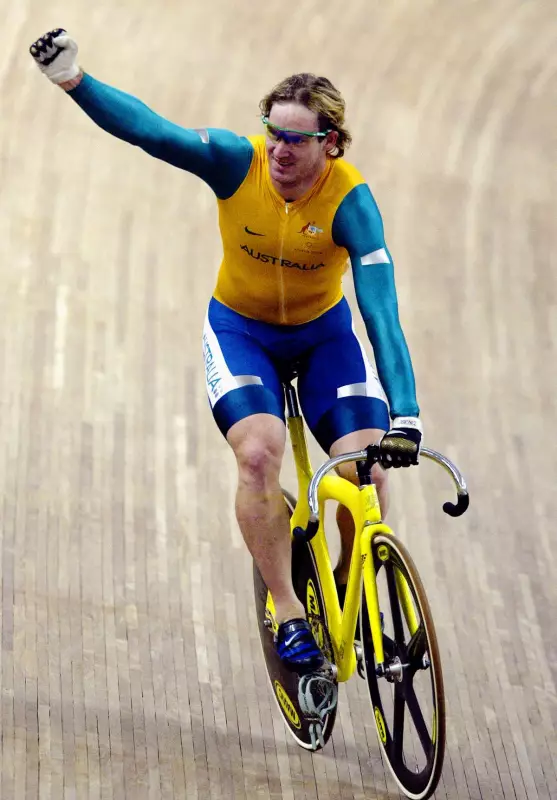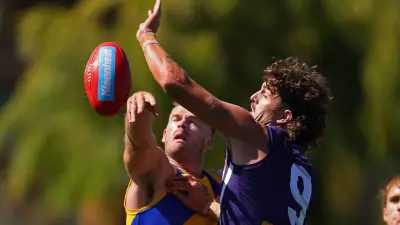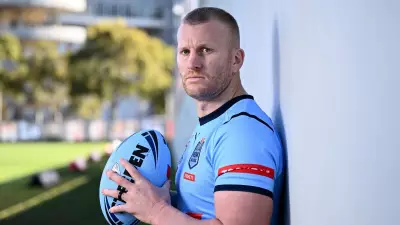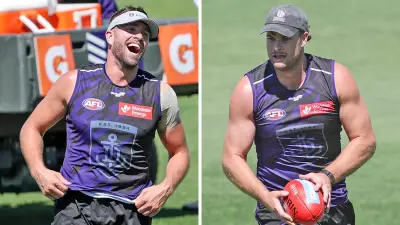
West Australian cycling sensation Ryan Bayley has revealed the brilliant psychological warfare that secured his unforgettable gold medal victory at the Athens 2004 Olympics, as he prepares for induction as a Legend in the WA Hall of Champions.
The Head Games That Won Gold
In one of Australian cycling's most dramatic moments, 22-year-old Bayley employed cunning mind games against Dutch world champion Theo Bos in their three-race sprint final showdown. Bayley's head swivelled deliberately - forward, back, forward, back - in a calculated attempt to confuse his rival about his true intentions.
"There were a lot of head games, a lot of tactics," Bayley told The West Australian ahead of Tuesday night's WA Hall of Champions dinner where the now 43-year-old will receive Legend status.
The Australian's strategy was pure psychological warfare. He wanted Bos to believe he preferred leading, when in reality he wanted to chase. "I wanted the back but I wanted him to think I wanted the front," Bayley explained.
From Shock to Strategy
The final didn't start according to plan. In race one, Bayley led out - his preferred position - only to be stunned when Bos nabbed him on the line with a flying 10.710 seconds for the final 200 metres.
"That's not how it was supposed to happen," a shocked Bayley recalled. "I needed to work it out in my head."
He switched tactics in race two, opting to trail rather than lead. When Bos looked certain to claim gold, Bayley produced a stunning half-wheel pass in 10.661 seconds to level the series.
Bayley had identified their contrasting strengths: Bos had better acceleration, while Bayley possessed superior top-end speed. The West Australian needed to force his rival to go early so he could use his power advantage.
The Perfect Trap
For the deciding third race, Bayley executed his masterplan perfectly. He pushed the pace and made blocking moves that convinced Bos he was desperate to lead.
"I made it look like I was trying to block him," Bayley said. "But then with my head, I made it look like I was looking forward, back, forward, back, instead of having a pattern."
When Bos finally made his move to pass, Bayley deliberately didn't give full gas, allowing the Dutchman to think he'd taken control. "He thought 'Right I'm in front now, I'm going for it' and I'm like 'Right I'm lining you up'," Bayley explained.
The trap was set. Bayley's raw speed proved decisive as he swooped past for gold in 10.743 seconds, crossing the line convincingly.
Double Gold and Lasting Legacy
Bayley's victory was part of an extraordinary Olympic campaign that saw him also claim the keirin final, making him the first cyclist ever to win the sprint-keirin double at a single Olympics.
Australian track coach Martin Barras declared after the sprint final that Bayley had "come of age", telling reporters: "You've seen a young guy become more of a man today, he is more of a man actually, he is the man."
The Athens success capped a glittering track career that included four Commonwealth Games gold medals and multiple world championship podiums.
Bayley's journey began as a young BMX rider curious about the Midvale velodrome he passed on trips to Chidlow Motocross Club. He fell in love with track cycling watching the 1996 Atlanta Olympics, captivated by "the speed of the velodrome, the purity of the sport."
His career included remarkable comebacks, particularly at the 2006 Melbourne Commonwealth Games where he won twin golds despite being "very underdone" following a serious crash that snapped his scapula and broke three ribs.
"I just won it out of hardness really," Bayley said. "I beat people that were faster with just tactics and hardness. I just wanted it more than they did."
The West Australian legend now works in a Brisbane bike shop, his place in Australian sporting history secured by those unforgettable moments of tactical brilliance in Athens.






